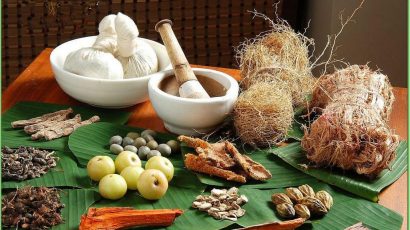Study supports herbal remedies for managing blood pressure

Man and Nature have an inseparable relationship. For his wellbeing on earth, Nature’s help is inevitable. Nature has a treasure trove to help him at any eventualities, from food, treating illnesses to keeping a healthy lifestyle.
For the treatment of any disease, just look around our backyard, one can find some plants with curing ability, which have been used across the world for thousands of years. However, what is more surprising is that all these plants have a universal presence. Only the names change, but commonly known as herbs and they do not have side effects.
The laboratory-born modern medicine may cure a disease fast, but the side effects caused by the chemicals in it will linger on harming the body and mind of the patient.
This may be the reason, researchers are now turning towards herbs to find a more effective and side effect-free medicines. Here we look at a research on herbal remedies which can reduce hypertension.
Researchers from the University of California, Irvin, recently zeroed in on a group of plants that have been a treatment for hypertension. Their findings are published in Proceedings of the National Academy of Sciences.
The scientists took herbal extracts from diverse range of unrelated plants including lavender, fennel seed extract, basil, thyme, marjoram, ginger and chamomile.
Led by Prof. Geoff Abbott, Ph.D., they identified a bioactive trait that all of the extracts shared. This trait , the scientists believe might help explain why some herbs appear to have mild antihypertensive properties. The researchers found that these herbs activate a particular potassium channel called KCNQ5. This potassium channel and others are present in the vascular smooth muscles—the muscles that line blood vessels. When vascular smooth muscles contract, blood pressure increases; when they relax, blood pressure drops. The activation of KCNQ5 results in the relaxation of these muscles. The authors think that this might help explain some herbs’ antihypertensive properties.
However, because hypertension is so wide spread, and because it increases the risk of cardiovascular diseases, such as stroke, there is likely to be significant interest in taking these ideas to the next stage. Information courtesy: Medical News Today















